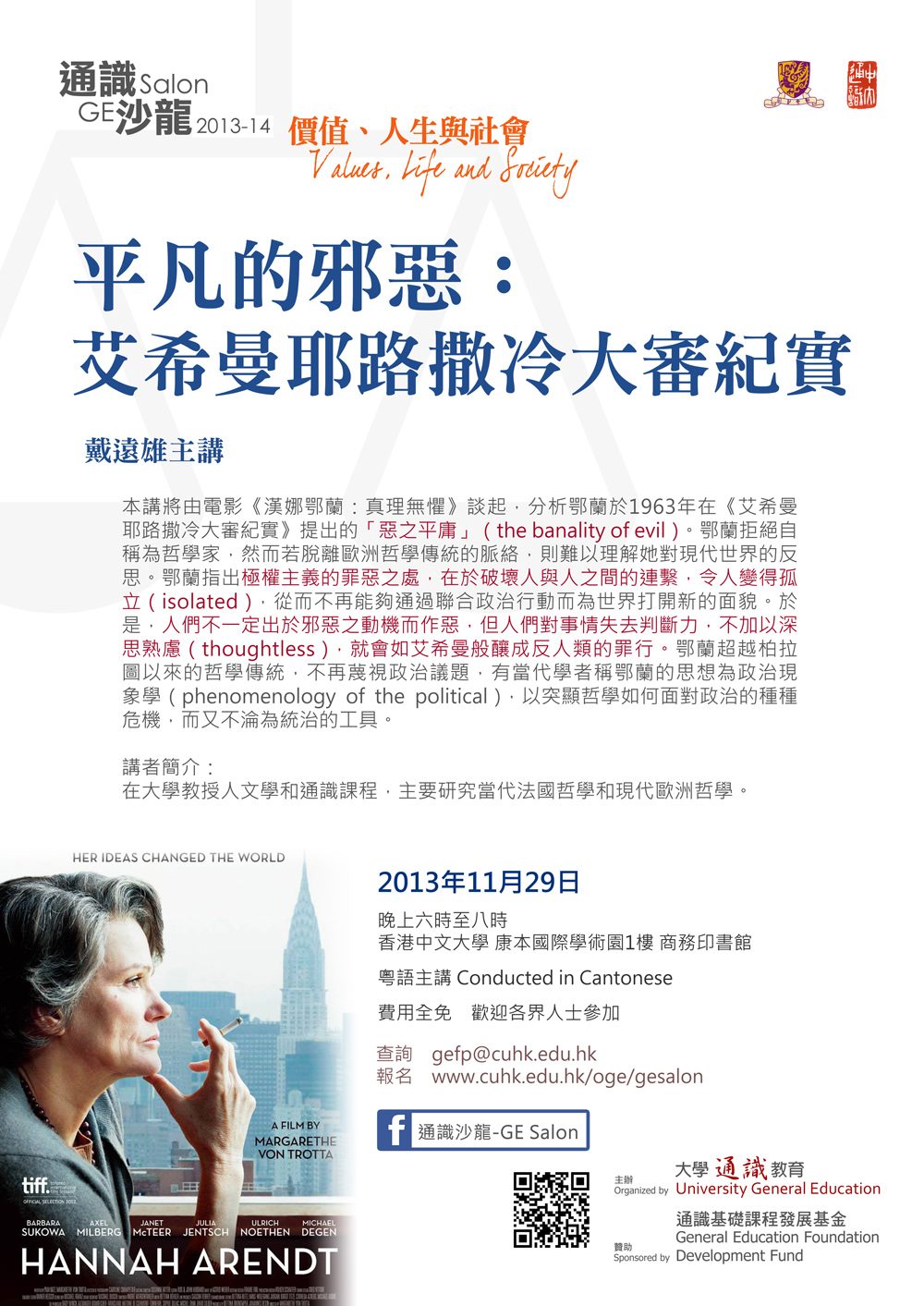Eichmann in Jerusalem: A Report on the Banality of Evil
Language: In Cantonese
Speaker: Mr. Tai Yuen Hung
* Supported by Goethe Institut Hong Kong
Synopsis
We are going to prolong Arendt’s philosophical reflections on the banality of evil and the political world starting from von Trotta’s film Hannah Arendt (2012). Although it is well known that Arendt refused to be named as philosopher, one could gain a better understanding of Arendt’s insistence on the problem of evil by referring to the relevant discussions in modern European philosophy. In Eichmann in Jerusalem (1963), Arendt deepened her remarkable analyses of the totalitarian regimes first appeared in The Origins of Totalitarianism (1951). We are going to revisit some of her important insights in revealing the constitutive processes of totalitarianism, like rendering individuals superficial, forming isolated subjects, alienating the capacity of judging and consequently alienating the public world of political actions. All these, in the eyes of Arendt, bring about the phenomenon of thoughtlessness in the present epoch. Nowadays more and more scholars recognize Arendt’s phenomenological way of thinking as the distinctive contribution to the contemporary arena of philosophy and political theories.
Speaker(s)
Mr. Jacky Tai: He is teaching humanities and general education in universities. His research interests include contemporary French philosophy and modern European philosophy.


